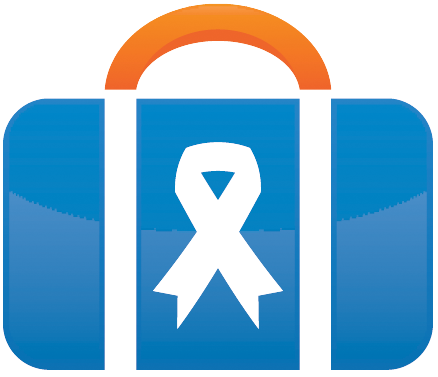Nonprofit events are as popular as ever, with 81% of U.S. donors attending engaging experiences hosted by their favorite organizations.
Plus, events are easier to plan than ever before thanks to innovative artificial intelligence (AI) solutions. AI solutions help organizations streamline the planning process, save time, and design events that appeal to supporters’ unique interests.
Whether you’re getting ready for a fundraising 5K or a charity golf tournament, this guide provides all the need-to-know information for using AI to plan fundraising events. We’ll explore top AI tools to support the planning process and best practices to make your events a smashing success.
Which AI tools can you use to support your fundraising events?
New AI solutions are being developed constantly, many of which have the features and functionality you need to support your nonprofit’s events. Let’s explore an overview of the types of AI fundraising solutions you can use to support the event planning process.
Generative AI solutions
Generative AI solutions, like ChatGPT and DALL-E, generate text, images, and even videos in response to prompts. For example, you could ask ChatGPT to “Come up with a list of theme ideas for a summer fundraising music festival.”
When planning your nonprofit events, you can turn to generative AI solutions for the following types of support:
- Brainstorming event theme ideas, auction item ideas, raffle basket themes, or event taglines.
- Developing outlines for event-related blog posts and email communications.
- Generating ideas for engaging and creative social media posts to promote your event.
Make sure your prompts are specific and descriptive. Provide details about the audience you’re trying to reach with your event marketing materials and your fundraising goals. You can also use past event successes to further describe the types of content you’re looking for.
For example, you might ask a question like “In the past, event attendees have enjoyed highly interactive experiences that allow them to engage with our mission on a personal level. Can you recommend event ideas that will provide this type of hands-on experience?”
Predictive modeling tools
Predictive modeling solutions, like IBM Watson, collect data about your nonprofit’s donors, event attendees, and other supporters to create models that anticipate their future behavior. Use these tools to:
- Identify top prospective event attendees who are most likely to participate in your event based on their past experiences with your organization. You can personally invite these individuals to your event with emails or handwritten letters.
- Estimate how much donors will give at your event based on past event metrics and donors’ current giving capacity and willingness.
- Identify donors who are likely to upgrade their giving and reach out to these individuals with personal event invites. Make an effort to engage with them in person at your event to deepen your relationships.
Predictive analytics tools allow you to make educated, data-driven decisions about which supporters to prioritize in your event marketing plan. They can also help you identify which new donors (who gave at your event for the first time) have the potential to become recurring or major supporters over time.
Virtual assistants
These solutions include assistants for writing, marketing, and keeping meetings organized. For example:
- Canva offers a Magic Write tool that generates compelling marketing messages for event collateral.
- Zoom has a meeting assistant that can take notes and summarize meeting objectives. This can streamline your event planning meetings and simplify follow-up so all planning committee members have the information they need to tackle their roles successfully.
- Grammarly provides an AI-powered writing and editing tool that helps improve your writing with grammar, voice, and tone suggestions.
These tools help your team speed up the event marketing process by eliminating writer’s block and managing the smaller day-to-day tasks required to plan your event.
Chatbots
Chatbots are tools that event attendees can use to ask questions or receive additional information. For example, let’s say an attendee wants to know where they can park at your event. They can simply ask your online chatbot and receive information such as a map or parking directions.
Marketing automation solutions
Automation tools help your event planning team save time, maintain consistent communications with event attendees, and distribute the logistical information your supporters need. Automation tools are often built into marketing platforms like email and social media scheduling tools. They can support your event planning by helping you:
- Send timely event promotional communications to supporters based on when they’re most likely to open your messages.
- Send automatic notifications after supporters purchase tickets, including ticket receipts and event reminders.
- Segment supporters based on shared characteristics, such as their motivation for giving or donation amount. Then, you can create personalized content based on the segments that emerge. For example, a segment of new donors might like to hear more about how your event fits into your organization’s larger charitable goals.
Marketing automation keeps your event attendees in the loop and helps build excitement leading to event day.
Task automation tools
In addition to marketing automation, AI tools can lend a hand in the ongoing tasks your event planning team must complete to keep your planning process running smoothly. These solutions reduce the necessity for time-consuming manual tasks. Using AI tools built into your CRM or marketing platforms, you can:
- Keep your donor data organized and clean. AI tools can run automated data screenings to identify and correct outdated, inaccurate, or duplicated data.
- Scan for security threats. AI can help identify bots and other cyber threats to keep donor data secure.
- Create reusable resources like marketing templates and event schedules. You can also use AI solutions to automatically create templates based on your most engaging marketing messages or most useful event schedules. You can easily leverage these templates again and again for future events or fundraising campaigns.
As your organization grows and adds more constituents to your database, task automation tools will help you manage your data in a scalable, sustainable way.
Best practices for using AI to plan fundraising events
Trust in AI technology is still shaky—research shows that 61% of people are wary about trusting AI systems. That means it’s essential to develop an AI approach that prioritizes maintaining donor trust and creating a better event attendee experience.
Before diving into the world of AI fundraising tools, set some ground rules with your nonprofit’s planning committee to use these tools ethically and effectively. We recommend taking the following steps with your team:
Create a responsible use policy
Because of the suspicion many nonprofit supporters may have about AI tools, you must create a transparent AI approach that keeps data privacy and ethics at the forefront.
BWF’s guide to AI for nonprofits highlights the following considerations for responsible AI use:
When it comes to using AI solutions to support nonprofit events, these are the most important considerations to keep in mind:
- Informed consent. Create a data policy for your event website that explains how your nonprofit collects data and how you use that information in the event planning process. Allow supporters to opt out of data collection if they don’t want their information used this way.
- Security. 360MatchPro’s data hygiene guide recommends thoroughly vetting your AI solutions to ensure you’re only using tools that incorporate “robust security measures, such as end-to-end encryption, secure algorithms, and regular security audits.”
- Accountability. Create a plan for quickly responding to and remedying any data breaches. Assign roles and responsibilities for team members to notify the public of the breach, contain the issue, and establish safeguards to prevent the problem from recurring.
- Legal compliance. Ensure your data policies and AI solutions align with relevant AI legislation in your state. Consult with your nonprofit’s lawyer to avoid any legal repercussions.
It’s better to establish an acceptable AI use policy before you begin using these tools to mitigate risks and create trust with your audience. Send emails to your constituents whenever you update or change your data policies so they can stay informed on how their information is being used and choose to opt out if they wish.
Use AI to create a better attendee experience
Ultimately, you should only use AI tools in the event planning process with the goal of creating a better experience for your event attendees, donors, and sponsors.
AI solutions can provide unprecedented insight into how attendees feel about your organization and your events. Use solutions like social listening tools and audience perception trackers to incorporate attendee feedback into the planning process for future events.
For example, perhaps attendees expressed a desire for more interactive opportunities during your gala event beyond just your auction. You could incorporate more gala games throughout your next event to keep attendees engaged and provide more ways to show their support for your cause.
Don’t forget to add a human touch
AI tools should be used to support your event planning process—not replace it entirely. You’ve probably heard of the Willy Wonka experience that suffered from poor AI marketing images and over-promised the event experience. These types of missteps can happen if you rely on AI tools to fully plan every aspect of your event without the benefit of human oversight.
Ask your event planning team to:
- Proofread and fact-check any results from generative AI solutions.
- Add your nonprofit’s unique tone and voice to any AI-generated content.
- Interact with supporters during your event to form personal connections.
Adding a human touch every step of the way will make your event an engaging experience for all attendees and help them connect with your mission on a personal level.
The best part about using AI tools to help plan your fundraising events is that you can build on previous successes to optimize your events over time. You can input data from past events into your AI solutions to help generate more accurate predictions and better content tailored to your audience’s interests. Use these tips to get underway with an ethical, efficient AI strategy that serves your nonprofit for years to come.




